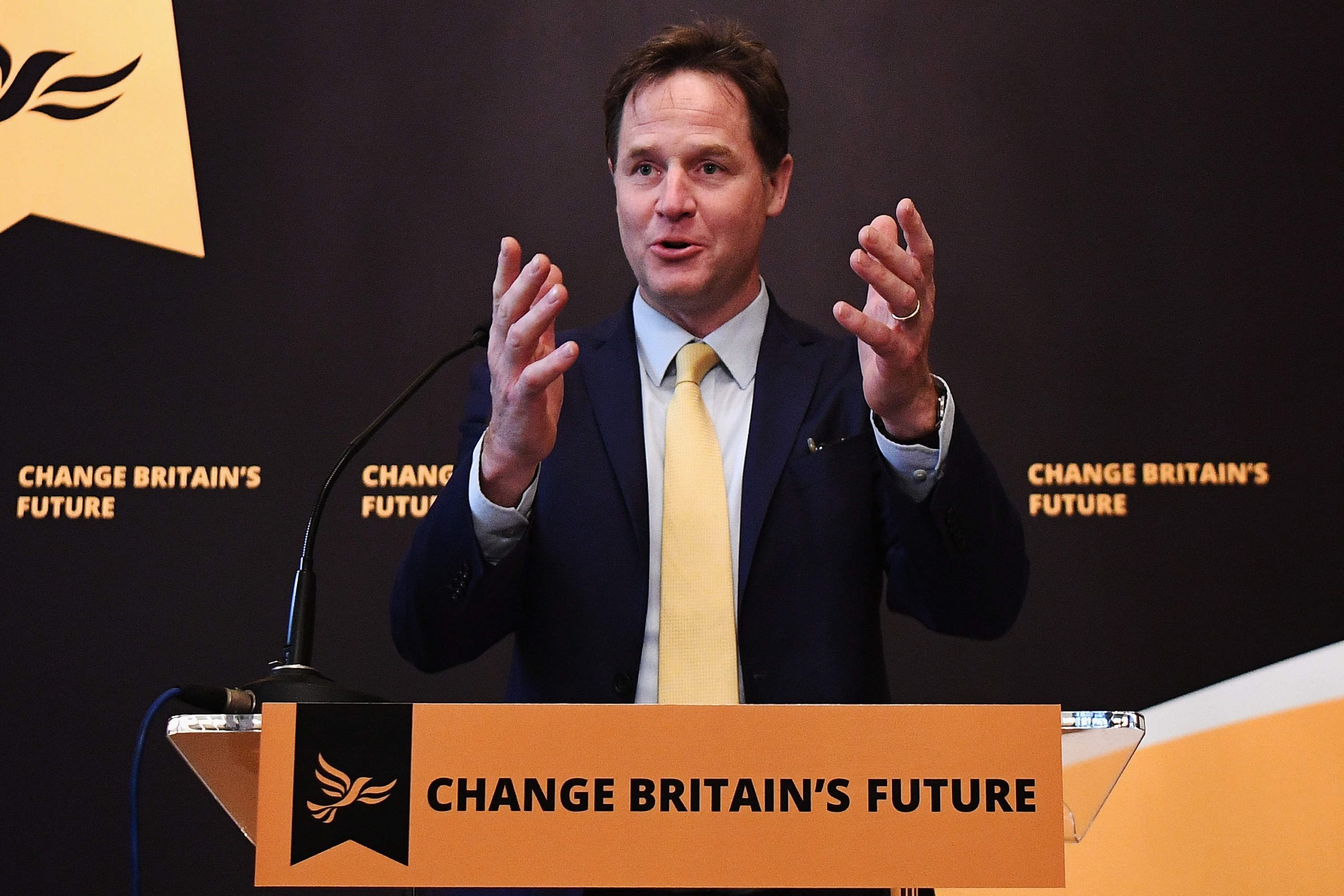
Suella Fernandes is the chair of the European Research Group, the Conservative backbench caucus seeking the hardest of Brexits. Nick Clegg is, well, Nick Clegg, possibly Britain’s most European politician, in terms of temperament and outlook, not to mention a man whose experience co-operating with the Conservative Party hasn’t been the happiest. You wouldn’t expect them to have much in common. You’d be wrong.
Today, Clegg and Fernandes, joined by Labour’s Stephen Kinnock, will publish the findings of the Commission on Inequality in Education, a year-long cross-party effort to identify and close the gap in educational outcomes between children from poor homes and children from rich homes.
It’s an impressive bit of work that raises any number of troubling questions about modern Britain, and offers some practical, sensible policies that would help make this a fairer country. But then, I would say that, because the Commission has been supported by the Social Market Foundation, the think-tank I run.
So I’ll leave it to others to judge the work of the Commission. Instead, I’d like to suggest some lessons that can be drawn from the fact that politicians who – on paper at least – should struggle to co-operate can and have happily come together to do something useful. Given Theresa May’s conversion to such co-operation (welcome to the cross-party, Prime Minister – what kept you?) those lessons seem timely.
The first lesson is that politicians generally find it easier to get along and collaborate than even they themselves think they will. The key is often simply spending time together, getting to know one another. From the outside, we tend to assume that because politicians, MPs especially, spend much of their time in the same place doing much the same thing, they must all know each other.
In fact, many MPs, especially newer ones, don’t know people in the other parties very well. When they get acquainted, they often find that the people on the other side are not the Marxist maniacs/heartless Hayekians they might have imagined, but are actually decent, well-meaning folk who simply prefer different solutions to similar problems.
Politics-by-Twitter doesn’t help here: online, it’s too easy and too common to impugn someone’s motives and think the worst of them. It’s much harder to do so over a cup of tea and a biscuit.
Given that, “safe spaces” where politicians can get to know each other can have real value. The old House of Commons culture of late hours and nights in the bar should not be mourned, but it did build cross-party understanding and even friendships
As a non-partisan organisation that wants more of this co-operation, the SMF’s door is always open to more of the conversations like the one that led to the Commission being set up last year. We don’t do late-night boozing, but our biscuits are OK.
A bigger lesson is that voters like this co-operative stuff. Yes, condemning the other side as hateful and immoral plays well with your base, but a lot of non-aligned people just wonder why the politicians can’t just get together and sort stuff out. Goodness knows, there’s enough to sort out.
That will make many readers think of Brexit, and there is indeed scope for some proper cross-party co-operation there. The most obvious is on the transitional deal the UK should seek after March 2019: when people as otherwise diverse as Clegg and Dan Hannan are arguing that some variant of Norway’s EFTA deal is the best next step, there’s surely scope for some sort of agreement. We know May wants support from beyond the Tories’ reduced ranks, and privately some Lib Dems and Labour people are interested in offering it. Given that we know May is now routinely being forced to abandon previous red lines, it’s not hard to imagine her making the compromises needed to win support from the other side of the House; clever people involved in some of the very private conversations already underway here suggest that the customs union is the place to look.
Of course, Jeremy Corbyn sees no advantage in co-operating on anything here, but how long will his newfound middle-class fans (especially in London) support a Labour leader intent on hard Brexit? He built a coalition at the election, but is he willing to do what’s required to keep it intact?
Then there are the issues beyond (or perhaps, beneath) Brexit. Westminster conversation since the referendum has largely fixated on the UK negotiating position and the intricacies of our possible outcomes.
Relatively little attention has been paid to the bigger, badder questions about the economic and social settlement that led many voters to reject all the warnings from political leaders, business leaders and “experts”.
In their own ways, May and Corbyn have both tried to acknowledge the underlying unhappiness expressed in the Leave vote, yet neither has fully captured that feeling, much less answered it. That’s one of the reasons they both failed to win that election.
My bet is that the sort of conversation that might properly address the questions posed by the referendum vote is simply too big for any one party.
This may be naïve optimism, but I still dream of the day when people from all parties sit down to a serious, grown-up conversation about an economy that generates more wealth and shares it more fairly.
So I was cheered by a recent conversation with a thoughtful senior Conservative who said this: “The great secret neither we nor Labour want to share is that we agree that the free-market economy isn’t working for a lot of people, and neither of us has worked out what to do about that yet.”
Now there’s something they could talk about.
James Kirkup is Director of the Social Market Foundation. He tweets as @JamesKirkup





